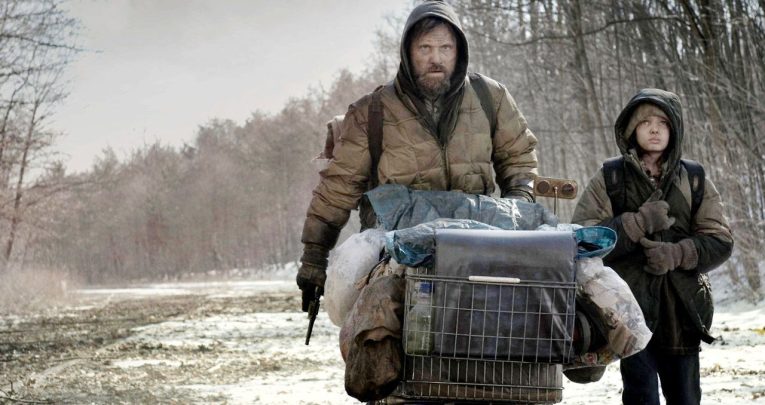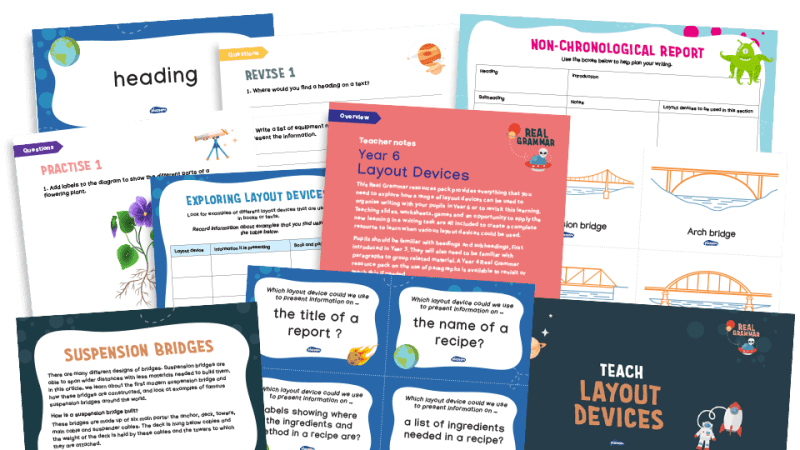Dystopian novels – 5 great choices for KS4

Rather than serving up the next Hunger Games imitator, delve deep into dark discussion points with these incredible novels
- by Nic Worgan

Dystopian fiction is all the rage right now.
So, if you’re looking for something to keep your Year 10s and 11s satiated with something new to discuss in class, here are five of my favourites
1. The Handmaid’s Tale by Margaret Atwood
 The Handmaid’s Tale is one of my all-time favourite books. Introducing it to students is a real teaching pleasure!
The Handmaid’s Tale is one of my all-time favourite books. Introducing it to students is a real teaching pleasure!
It tells the tale of the protagonist Offred, who is living in a future New England totalitarian theocracy which has overthrown the government. In the new regime, Offred’s role has been reduced to one function which is to breed. If she tries to rebel against this role she faces death. The novel is a brilliant exploration of women in subjugation and their desperate attempts to hang on to their independence.
It is a superb text to teach as it can really make students think about freedom and how easily it can be taken away. For example; at the beginning of the regime Offred tells the reader how her credit card, along with other women, is stopped from working. This simple act immediately takes away a large part of her freedom and increases her reliance on her male partner.
Discussion questions
| Do you think this text is complete fiction or does it contain elements of our current reality? | |
| How would this novel be different if it hinged on male, rather than female, fertility? | |
| What do you think happens to Offred at the end of the novel? |
2. 1984 by George Orwell
 1984 is arguably the most famous dystopian novel. It tells the story of Winston Smith who is a member of the ruling Party in London which is in the nation of Oceania. The Party is led by a figure known as Big Brother and it watches everything everybody does. Winston feels frustrated by the oppression and, like Offred, struggles to hold on to his individualism which is forbidden by the Party.
1984 is arguably the most famous dystopian novel. It tells the story of Winston Smith who is a member of the ruling Party in London which is in the nation of Oceania. The Party is led by a figure known as Big Brother and it watches everything everybody does. Winston feels frustrated by the oppression and, like Offred, struggles to hold on to his individualism which is forbidden by the Party.
Although written in 1949, this text is a brilliant one to teach because of the questions it raises. In the novel the Party forces the implementation of an invented language called Newspeak which attempts to prevent rebellion by eradicating all words relating to it. It is a complete gift to an English teacher in terms of a discussion about the power of language. Discussions about Big Brother and Room 101 can also be fruitful in a modern context.
Discussion questions
| Does Winston possess any heroic qualities? | |
| How accurate do you think Orwell was in his vision of the future? | |
| Imagine yourself as Winston at the start of the novel. What would you do to undermine the party? |
3. Divergent by Veronica Roth
 Although it would be difficult to place Roth’s novel in the same heavyweight dystopian category as 1984 or The Handmaid’s Tale, it certainly has an interesting take on a dystopian future. It tells the story of Beatrice Prior who lives in a society which is divided into five factions, each of which is dedicated to a particular virtue. Beatrice surprises everyone by choosing to devote her life to the faction of bravery, Dauntless. As her story develops we learn of growing conflict in an increasingly unstable society.
Although it would be difficult to place Roth’s novel in the same heavyweight dystopian category as 1984 or The Handmaid’s Tale, it certainly has an interesting take on a dystopian future. It tells the story of Beatrice Prior who lives in a society which is divided into five factions, each of which is dedicated to a particular virtue. Beatrice surprises everyone by choosing to devote her life to the faction of bravery, Dauntless. As her story develops we learn of growing conflict in an increasingly unstable society.
This modern dystopia is a great one to teach because, unlike some other dystopias, it contains the struggles of the protagonist as she transitions into adulthood. Some of the difficulties she faces may well resonate with students.
Discussion questions
| How do Beatrice’s values change over the course of the novel? | |
| In what ways does Beatrice’s relationship with Four help her? | |
| Do you think the novel reflects our society in any way? |
4. Never Let Me Go by Kazuo Ishiguro
 Never Let me Go is narrated by Kathy who throughout the novel tries to come to terms with her childhood. She grows up in a school called Hailsham which, on the surface, seems idyllic. But as the novel progresses we learn of a dark, science fiction dystopia where the students are created solely to be organ donors.
Never Let me Go is narrated by Kathy who throughout the novel tries to come to terms with her childhood. She grows up in a school called Hailsham which, on the surface, seems idyllic. But as the novel progresses we learn of a dark, science fiction dystopia where the students are created solely to be organ donors.
This is a wonderful novel to teach as it explores the complicated relationships between Kathy and her friends. We see her trying to come to terms with her past and the fragility of human life. It is a bold and original novel which will help students to engage in serious debate.
Discussion questions
| In what ways are Kathy and her friends different to other humans? In what ways are they the same? | |
| Why do you think Kathy takes such pride in being a good carer? | |
| Does the novel examine the possibility of human cloning as a legitimate question for medical ethics, or is it presented as morally repellent and therefore impossible for science to pursue? |
5. The Road by Cormac McCarthy
 This novel presents a post-apocalyptic world. It tells the tale of a father and his son as they journey through a landscape which has been obliterated by an extinction event. The father knows he is dying but continually reassures his son that they are “carrying the fire”. The novel tells of their hardships, including the gruesome discovery of a locked cellar which contains captives whom cannibal gangs have been eating limb by limb.
This novel presents a post-apocalyptic world. It tells the tale of a father and his son as they journey through a landscape which has been obliterated by an extinction event. The father knows he is dying but continually reassures his son that they are “carrying the fire”. The novel tells of their hardships, including the gruesome discovery of a locked cellar which contains captives whom cannibal gangs have been eating limb by limb.
The novel explores some real and terrifying questions about a post-apocalyptic world which are sure to engage students.
Discussion questions
| Why do you think the writer deliberately omits describing how the world ended? What impact does this have on the reader? | |
| Are some of the scenes in the novel too gruesome or are they necessary? | |
| Why do you think we never learn the names of either the father or son? |
Nic Worgan has been teaching English for 13 years, in secondary schools and in further education, and has a lot of TEFL experience. Nic has also been a GCSE examiner for many, many years, and blogs at gcse-english.com. You can find her on Twitter at @LitLearn. Browse resources for Banned Books Week.










